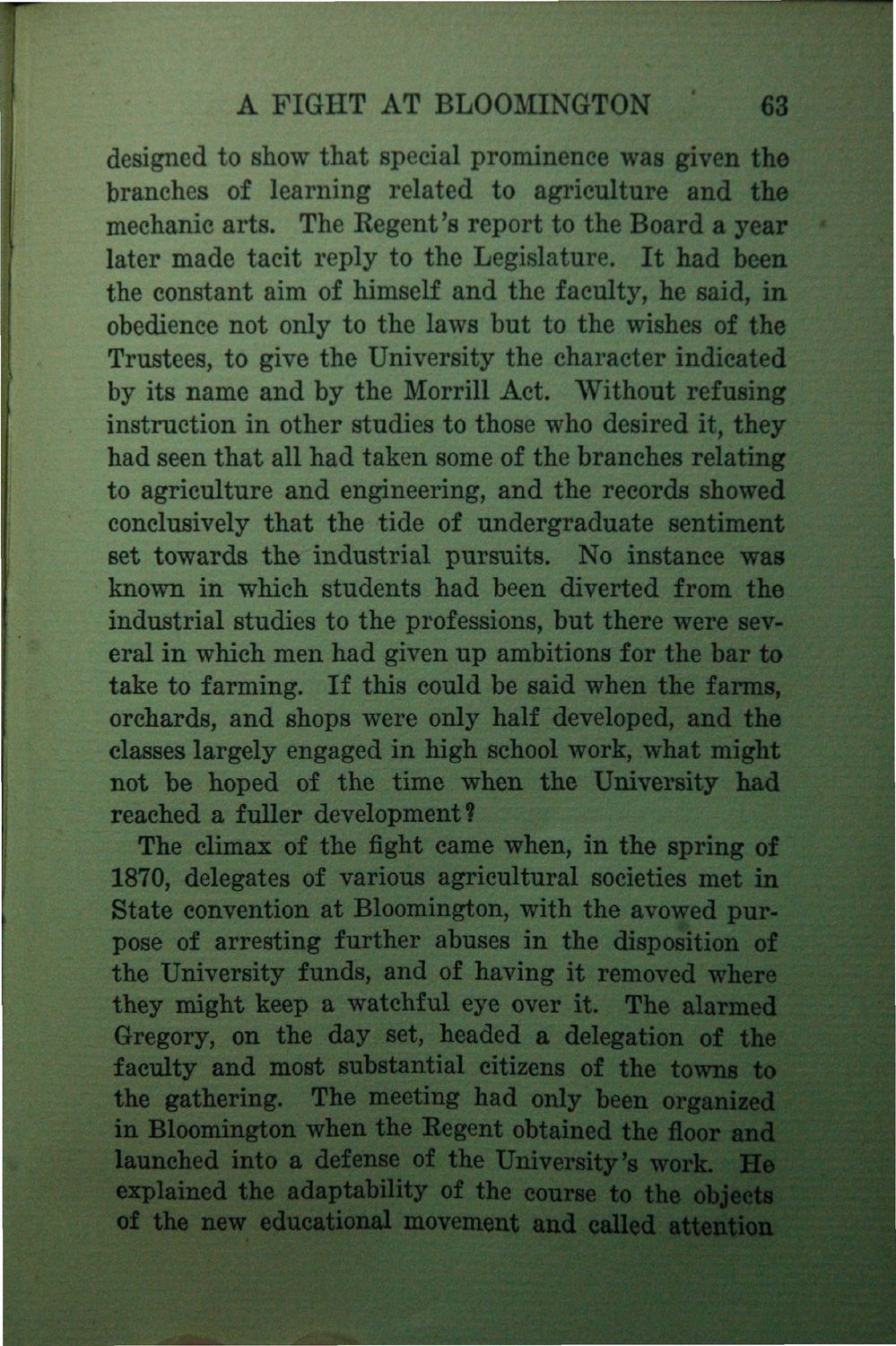| |
| |
Caption: Book - History of the University (Nevins)
This is a reduced-resolution page image for fast online browsing.

EXTRACTED TEXT FROM PAGE:
A FIGHT AT BLOOMINGTON 63 designed to show that special prominence was given the branches of learning related to agriculture and the mechanic arts. The Regent's report to the Board a year later made tacit reply to the Legislature. It had been the constant aim oi himself and the faculty, he said, in obedience not only to the laws but to the wishes of the Trustees, to give the University the character indicated by its name and by the Morrill Act. Without refusing instruction in other studies to those who desired it, they had seen that all had taken some of the branches relating to agriculture and engineering, and the records showed conclusively that the tide of undergraduate sentiment set towards the industrial pursuits. No instance was known in which students had been diverted from the industrial studies to the professions, but there were several in which men had given up ambitions for the bar to take to farming. If this could be said when the farms, orchards, and shops were only half developed, and the classes largely engaged in high school work, what might not be hoped of the time when the University had reached a fuller development? The climax of the fight came when, in the spring of 1870, delegates of various agricultural societies met in State convention at Bloomington, with the avowed purpose of arresting further abuses in the disposition of the University funds, and of having it removed where they might keep a watchful eye over it. The alarmed Gregory, on the day set, headed a delegation of the faculty and most substantial citizens of the towns to the gathering. The meeting had only been organized in Bloomington when the Eegent obtained the floor and launched into a defense of the University's work. He explained the adaptability of the course to the objects of the new educational movement and called attention
| |